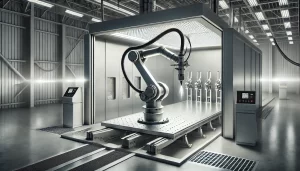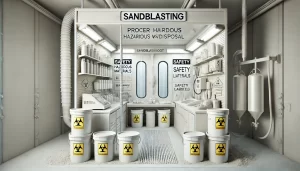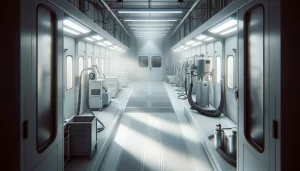What Is Industrial Finishing?
Industrial finishing includes a variety of processes used to enhance the aesthetic or functional properties of a manufactured product. Industrial processes differ from other types of processes in that they usually rely on advanced equipment, technologies, or materials to help these products stand up against heavy use or abuse. Industrial finishing can be used to alter many materials, including metal and wood. It is also used on thermoplastics and composite materials. After manufacturers add materials to products to make them look good, or change the material properties, products get their final look. After the product has been manufactured, it needs to be processed before it can be sold. This includes machining an object out of wood or metal using a lathe or milling machine. It involves molding or extruding melted plastics to give them the desired shape.
Once objects have been fully formed, industrial finishing is used to prepare them for sale, or to customize the object based on the needs of different buyers. The simplest form of industrial finishing involves altering the physical appearance of the object by adding or removing materials. When it comes to metalworking, for casting, this could mean smoothing the surface or the edges of a piece to get rid of sharp edges. Finishing means sanding or grinding away excess material to create a smooth surface on an object, and/or giving the object a polished appearance. In order for the metal to look like silver or gold, it’s important to ensure that the metal is cleaned of surface impurities and that it’s polished to a high standard. Industrial finishing processes involve applying protective coatings to objects. This includes painting or staining wood, metal, and other materials. For paint booths, read here to see what makes a superior booth.
Ceramic glaze is used to apply a layer of clear or translucent color to an object. A number of specialized finishes, such as powder coating of metal may be included in this category. More advanced finishing typically involves altering the physical characteristics of the object to give it enhanced strength or other features. Metal such as titanium, iron, and steel can be hardened or annealed by adding chromium. Electroplating can also refer to the procedure of applying a coating of a metallic material to an object by passing an electric current through a solution. This process also involves processes aimed at improving corrosion resistance, including galvanization and chemical treatments.
See more of our posts here.




